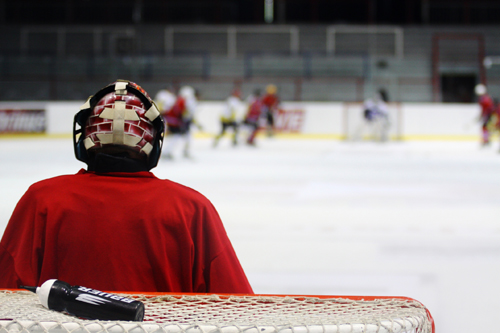By Danyelle Liddle, Students Promoting Awareness of Research Knowledge (SPARK)
For athletes, sports drinks help provide the ingredients to success. But for many inactive Canadians, sports drinks are not necessary.
That’s the word from Prof. Lawrence Spriet, an expert in exercise science and chair of the Department of Human Health and Nutritional Sciences. Canadians spend more than $450 million on sports drinks every year, says Spriet, but he only recommends the drinks to prevent dehydration and fatigue during moderate to intense exercise and physical labour that generates a lot of sweat.
“Unfortunately, the average Canadian isn’t moving; they don’t need a sports drink,” he says. “But, an athlete needs the sugar, salt and water for physical and mental performance.”
So how do you know when you cross the line? Spriet says only those who lose approximately two per cent of their body mass through sweat need a sports drink. That means a 60 kg woman or an 80 kg man would need to lose 1.2 or 1.6 kg in sweat – the equivalent of about 1.2 or 1.6 litres.
Spriet says sports drinks contain sugar as an energy source that active humans can quickly absorb to prevent fatigue, as well as salt and water to replenish that which is lost through sweat.
In fact, all of the extracellular water in our bodies is salt water, containing nine grams of salt, or two teaspoons, for every litre. Table salt consists of sodium and chloride, which are called electrolytes in the body. Their concentrations outside human cells, relative to that of potassium inside the cells, are critical to muscle contraction and mental alertness. The problem is that when humans sweat they lose the water and electrolytes they need to preserve.
Overall, Spriet and his graduate students are targeting dehydration in athletes engaged in “stop-and-go” sports or “decision-making” sports such as hockey and basketball to optimize physical and mental performance. These sports are fast-paced, he says, and success depends not only on an athlete’s skill but also their ability to make quick and calculated decisions while under pressure.
By conducting sweat tests, Spriet can determine the amount of fluid and electrolytes necessary to prevent dehydration for each individual athlete. He has worked with Hockey Canada’s world junior team since 2005, and he has previously worked with the Guelph Storm hockey team and the Toronto Raptors basketball team.
In a recent study of Gatorade consumption in comparison to no fluid intake at all, Spriet found the drink prevented dehydration, improved athletic performance and decreased mental fatigue in skilled male hockey players during a scrimmage. This study was submitted for publication to the Applied Physiology, Nutrition and Metabolism journal.
Spriet and his graduate student, Greg Eskedjian, are now recruiting skilled male hockey players from the University of Guelph to compare the effects of sports drink, water and no fluid intake on physical and mental performance during a scrimmage and on-ice drills.
Spriet is chair of the Canadian Gatorade Sports Science Institute, which supports some of his graduate students but does not fund his research. Spriet’s research is funded by the Natural Sciences and Engineering Research Council.
